If you have a basement at home, you might be wondering: Should it be included in the total square footage for air conditioner installation? We know you're not alone, so we've consulted the experts and browsed through various forums to answer this question and more.
You need to count your basement's square footage for air conditioner installation if you want to control its climate. If not, however, then don't count its square footage.
That's the short answer. Sounds straightforward, right? Well, the devil is in the details. Read on to find out exactly how your basement fits into your home's cooling and heating needs and the things you need to watch out for.
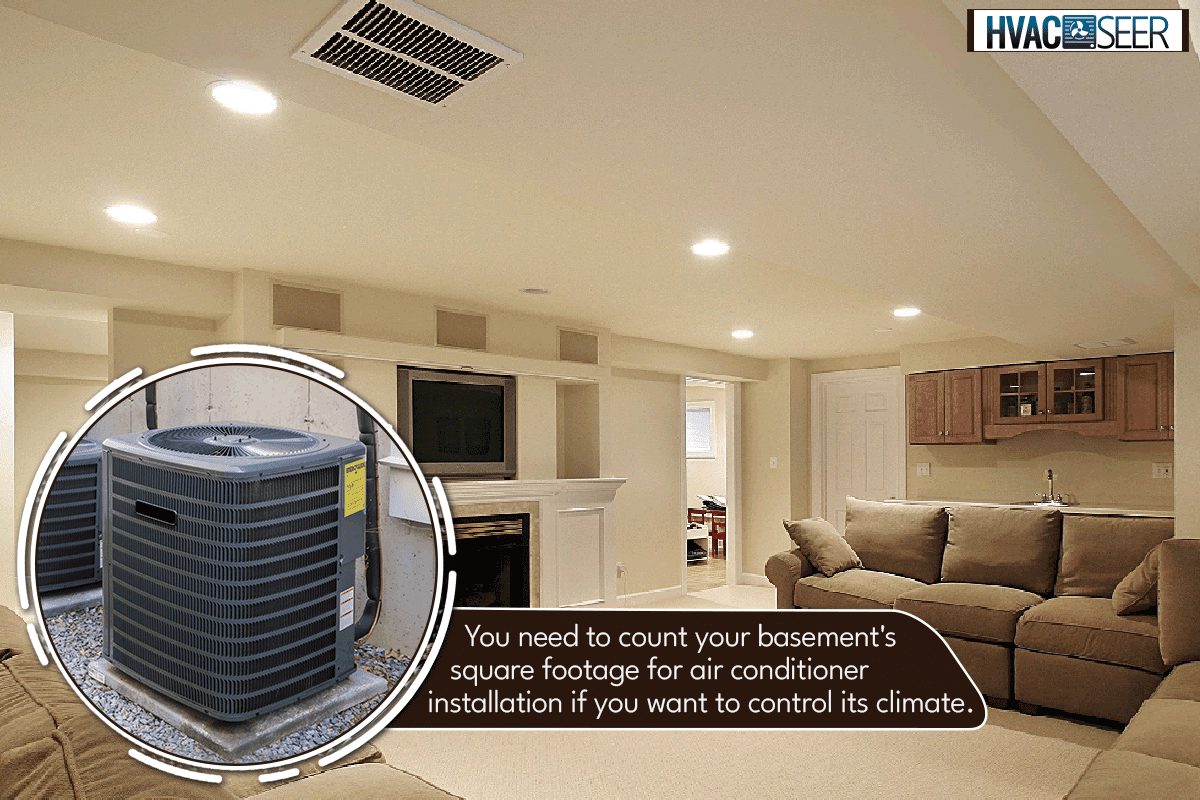
Do You Count Basement Square Footage For Air Conditioner?
Imagine walking down to a fully-furnished game room equipped with fancy lighting and surround sound systems. Or to a wine cellar for a quiet, cozy evening with your significant other.
All this would sound like a dream compared to the designated stockroom that most homeowners would call their basements.
In fact, not all houses have basements. They are considered structurally impractical in some states, like Texas, for example. Basements commonly serve as shelters in tornado-susceptible states in the midwest or as structural support against the frost line.
But if you're looking to convert that extra space below your house into prime living quarters, you'll need to do more than just rearranging a few shelves and furniture. You'll have to deal with the stocky, chilly environment that basements are known for.
Basements are notorious for harboring molds due to excessive moisture and lack of ventilation. That familiar smell of stale, unmoving air is hard to tolerate, but they love it!
Molds thrive in this kind of environment and will make Petri dishes out of your stored electronics and pre-loved clothes. If you let them be, you might as well say goodbye to your beat-up 70's Sony Walkman and that extra TV you received a few Christmases ago, patiently sitting in its cardboard box (that'll look fantastic in your dream game room!)
AC installation
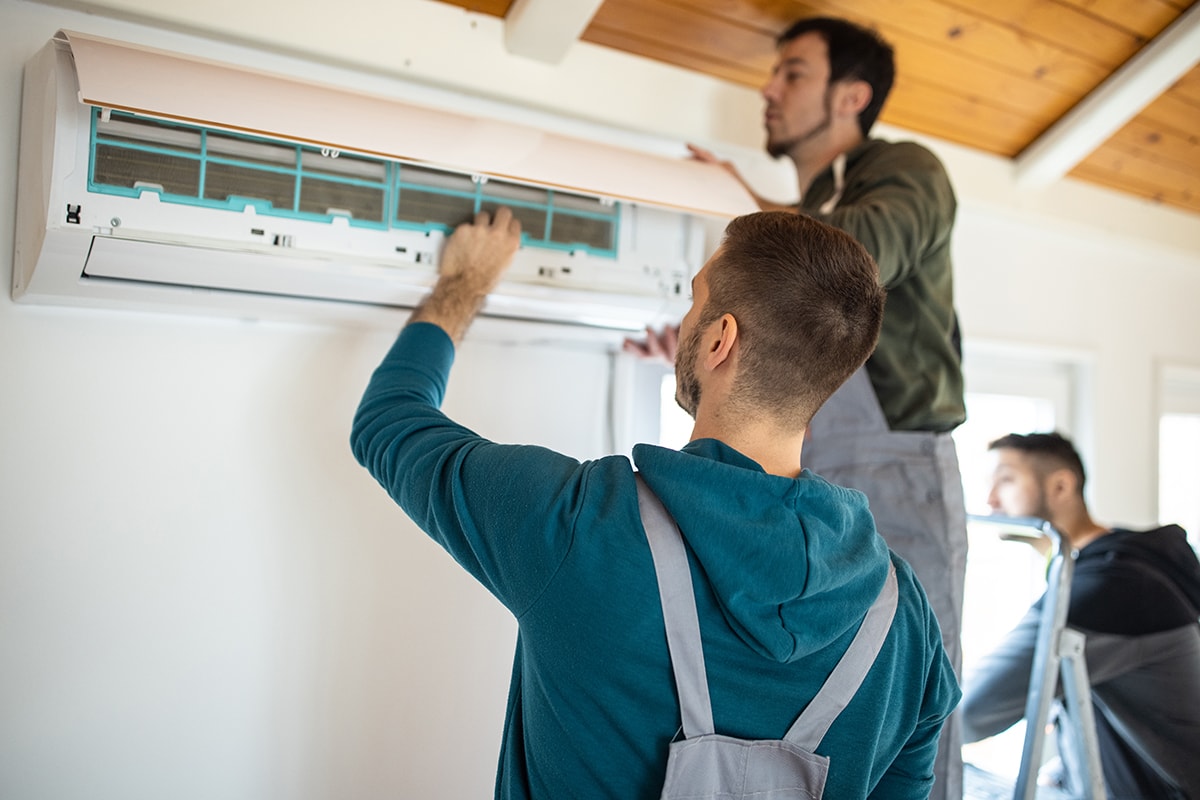
Air conditioners are an excellent way to keep your basement comfortable during winter and comfortably cool during summer. In addition to this, it keeps moisture levels to acceptable levels.
Installing AC will be a great first leap in furnishing your new space. It won't be so hot and humid when you actually start lugging things around to suit the aesthetic.
So if you keep valuables down there or plan to upgrade it into a liveable space, count the basement when measuring square footage for AC installation or replacement.
For climate control
If you're worried about mold destroying your valuables, or if you want to occupy it as a living space, then the basement should be factored into your HVAC system.
To compute the square footage of your basement, multiply its length and width. That's basically it. For example, if your basement is 10 feet long and 12 feet wide, it comes to 120 square feet.
How do you size an air conditioner for your home?
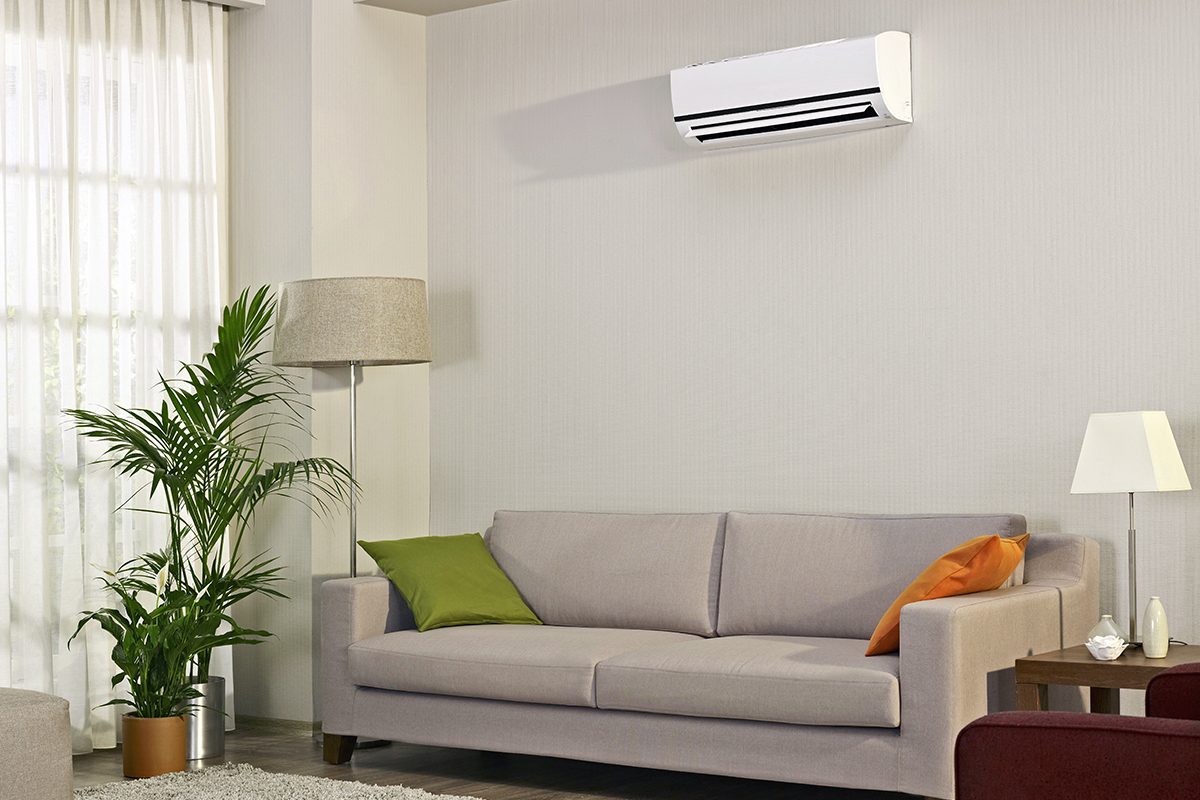
Various online calculators ask for the square footage and location of your home, as some states are hotter than others.
While you can use these as rules of thumb (to prevent getting scammed by overpricing), having professionals visit to make in-person assessments is the best option.
The gold standard for determining the right size AC, as set by the Air Conditioning Contractors of America (ACCA), is called Manual J. This framework lists a set of approved programs that give accurate readings for optimal heating/cooling.
It uses your home's square footage dimensions, but that's just one of the many measurements it will ask for. Manual J also factors in ceiling height, the number of windows, insulation, and more.
It's the exact opposite of guesswork that you're supposed to avoid prior to making a significant investment, such as AC installation. Unfortunately, not all HVAC contractors bother to practice this framework religiously.
ACCA's website can help you get in touch with a nearby listed HVAC contractor.
If you prefer to do it yourself, even though it's a very long process with many things to measure and consider, you can use Cool Calc (a free online program that ACCA recognizes).
Basement HVAC requirements
We recommend either going with central air or ductless mini-splits. Whether you choose one or the other, no harm will come from consulting local contractors to see which one will best fit your needs (and budget!)
Can you put central air unit in the basement?
Yes, you can. However, if you plan on installing central air, some experts recommend only counting half of the basement's square footage when adding it to the rest of the house.
If you have existing central AC and would like to know if it can be extended to include your basement, ask for a professional to visit and see if the additional load can be supported.
The potential downside, however, is that this option could take significant time to finish (due to additional ductwork and construction).
Can ductless AC be installed in basement?
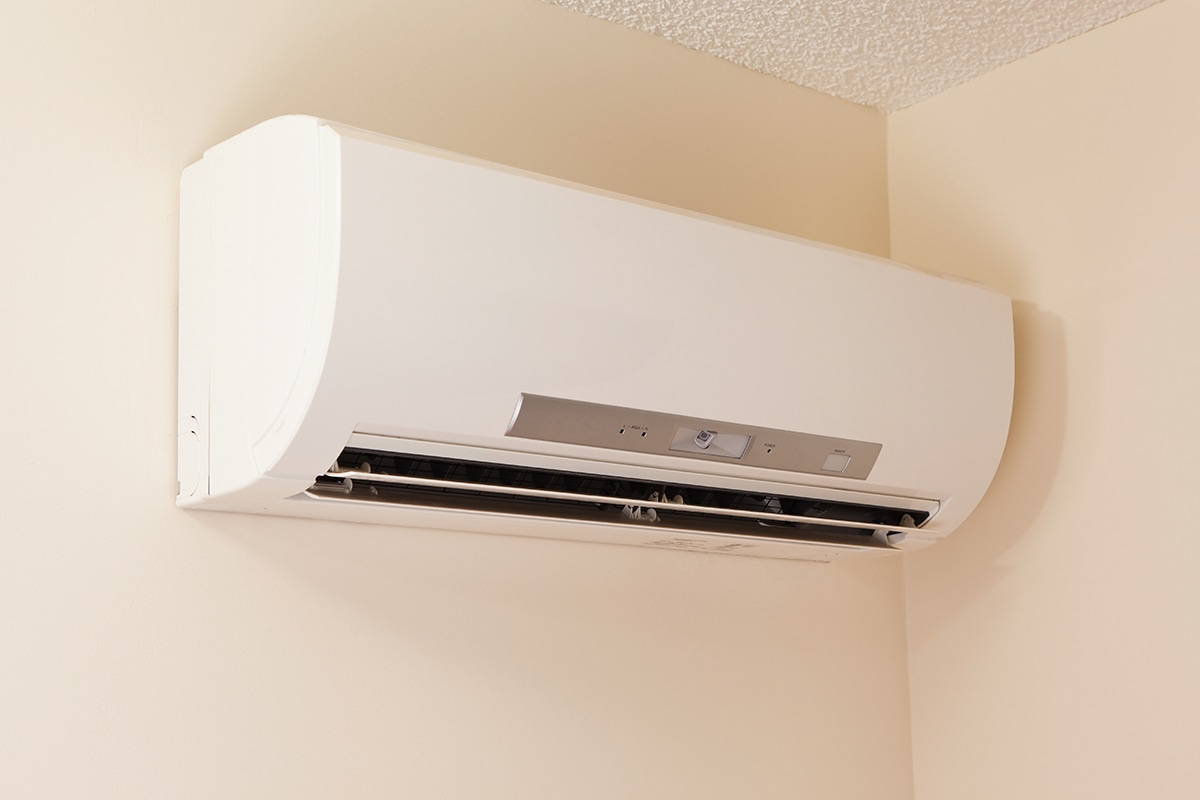
Many contractors will recommend getting a ductless mini-split, especially for smaller basements. This makes for a great alternative because no ductwork is needed (hence the name).
You only need to bore a small hole in the wall for a pipe that connects the indoor unit to the condenser outside. Installation is much easier and faster than central air.
MRCOOL even offers a DIY line of products that you can install yourself without needing specialized tools or equipment. Mini-splits have garnered a strong reputation even among professional HVAC installers.
Mini-splits are also energy-efficient due to the lack of ductwork. Plus, they are cheaper! You can use it to supplement an existing central air system.
Check out this MRCOOL DIY ductless mini-split on Amazon.
If the basement won't be air-conditioned
Count it out of your measurements when preparing to buy AC. Granted, you can still store items down there, but it will make for a less comfortable underground gym or home office setup without air conditioning.
Because you don't count the basement's square footage in the equation (no permanent cooling or heating), it won't constitute a finished basement. This is true even if it is used as a living space—think furnished, like a bedroom.
As such, you don't get the benefit of raised real estate value that a finished basement can contribute.
Regardless, we recommend getting a digital humidity gauge for your basement. This simple device can detect the level of moisture in one area.
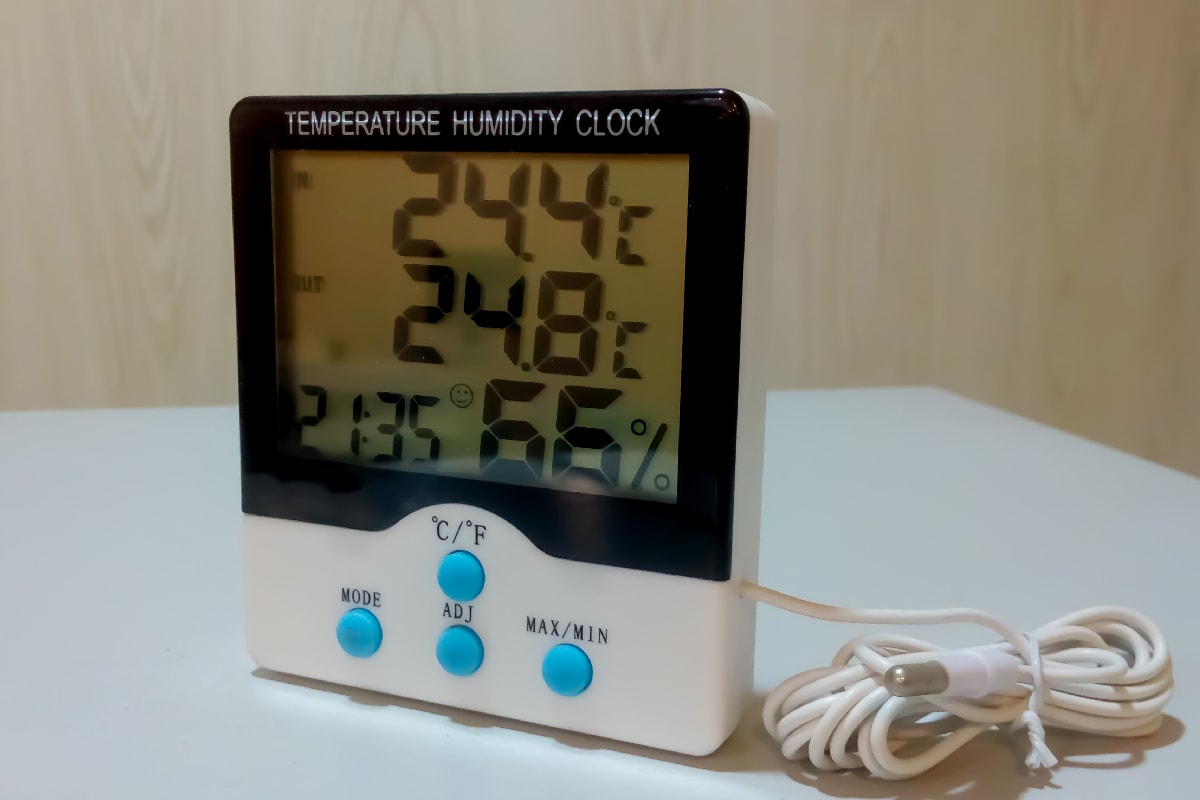
It's a good idea to check on thisoccasionally, especially after heavy rainfall or during the winter (when condensation could form in your basement walls).
Check out this ThermoPro indoor humidity gauge on Amazon.
Now, even if you don't air-condition it, you can do a few other things to prevent mold from overtaking your basement.
Products and appliances that help fight mold
Try dehumidifiers, moisture absorber packs, or exhaust fans that direct indoor basement air to the outside.
Check out this Frigidaire dehumidifier on Amazon.
Or, if you prefer disposables:
Check out Vacplus moisture absorbers on Amazon.
If you want to know more about the role of ventilation in basements and the options in detail, check out our article: How To Ventilate A Basement With No Windows
Insulation
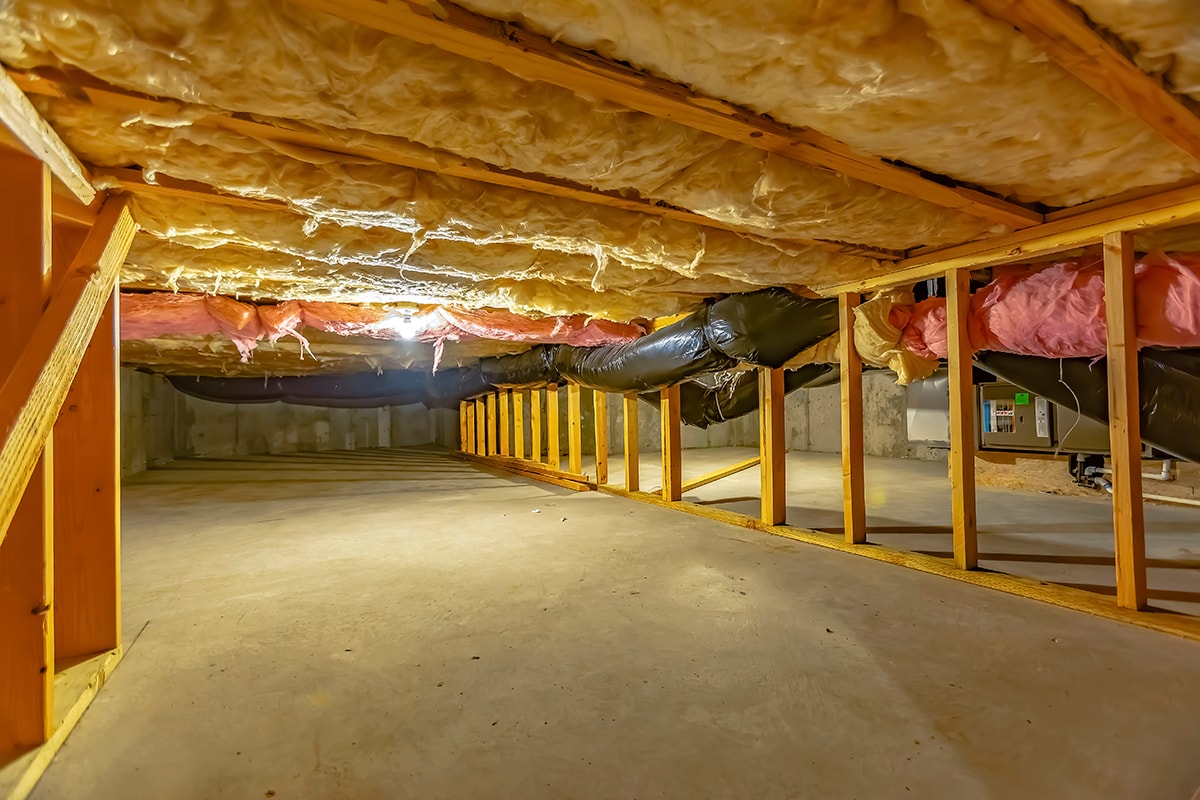
Insulation plays a vital role in keeping moisture out of the basement and regulating heat transfer. While houses are built to last, not all materials and building methods are equal.
It won't make sense to insulate from the outside—with the entire basement below ground—but there are benefits to insulating your basement walls from the inside.
To look at the pros and cons of insulating your basement, make sure to read our article: Should You Insulate Basement Walls
In conclusion
Whether or not you count your basement's square footage for air conditioner installation depends on your plans for the space. If you want to make it comfortable, then by all means, include it in the square footage and AC installation.
We hope we were able to answer your question adequately, and we wish you the best of luck with your home improvement projects.


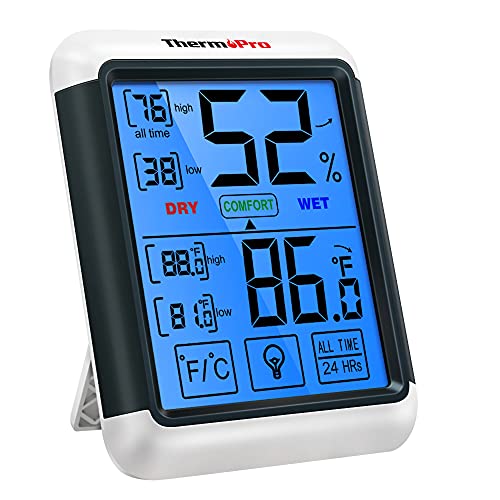
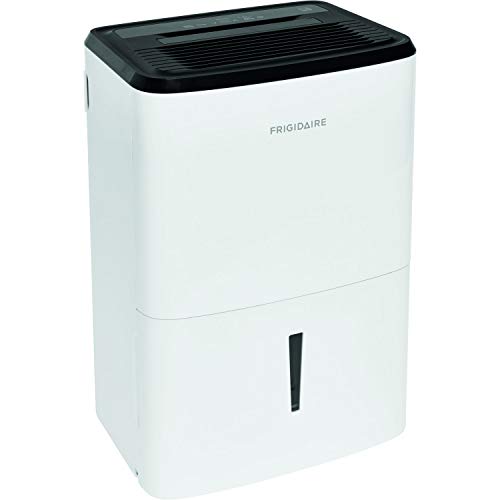

I really appreciate your helpful advice on how to properly account for the square footage in basement when considering air conditioner installation. Thank you!